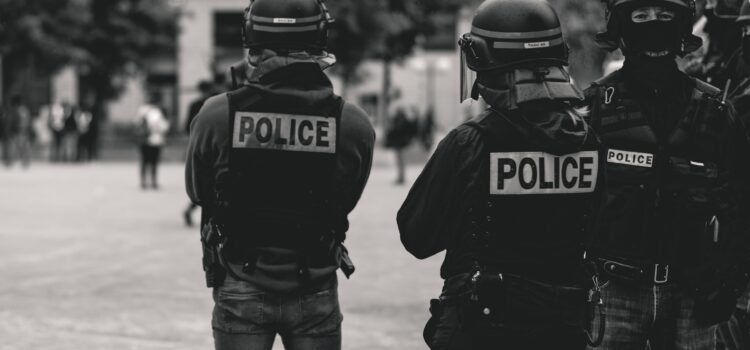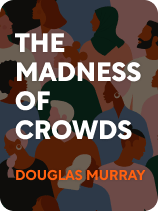

This article is an excerpt from the Shortform book guide to "The Madness of Crowds" by Douglas Murray. Shortform has the world's best summaries and analyses of books you should be reading.
Like this article? Sign up for a free trial here.
Are acts of violence in the name of social justice justified? Will they provoke retaliation that’s even worse?
Douglas Murray predicts serious consequences for our civilization if we’re not able to effectively stem the tide of the woke ideology. One of the effects he explores in The Madness of Crowds is the increased risk of societal violence.
Keep reading to learn about Murray’s concerns.
The Rise of Societal Violence
Murray believes that the New Ideology’s obsession with uprooting privilege could escalate chances for large-scale societal violence. He specifically cites acts of violence and vandalism that occurred in connection with the Black Lives Matter movement (BLM). Murray also expresses concern that such acts will become increasingly common, masquerading as calls for justice (such as justice for George Floyd) when they’re really calls for vengeance against the perceived white majority, Western culture, and historic discrimination. He explains that the blame-casting call of the New Ideology feeds this vengeance.
(Shortform note: Some experts suspect that one of the reasons why protests—like those associated with BLM—turn violent is because of the way crowds and police interact with each other. They argue that, even if only a small portion of the crowd acts confrontationally towards law enforcement, the latter frequently see that violent behavior as representing the attitudes or intentions of the whole crowd. This then increases the likelihood that each side will see the other one as the enemy, and societal violence may escalate.)
For Murray, violence from believers in the New Ideology may ultimately lead to the majority white population retaliating against the oppressive, totalitarian nature of the New Ideology. He fears that these retaliators will believe minority identity groups are responsible for the New Ideology, and these retaliators will target these groups for reprisals. This could set the clock back on many of the hard-fought rights that minority groups have achieved in recent decades. Murray thinks it’s possible that, when the majority retaliates, it may use what it sees as similar methods of censorship, humiliation, and villainization.
(Shortform note: Fear of conservatives committing extremist acts of reprisal against wokeness may significantly underestimate their potential to organize resistance through more civil and conventional means. Some political action committees actively seek to work through the legislative process, campaigning for conservative voters to help lawfully promote specific anti-woke policies. Examples of such policies include banning schools from teaching Critical Race Theory or disallowing transgender girls and men from participating in female athletics. These and more policies may be achievable simply through galvanizing support among current and potentially new constituents.)
| Condoning Political Violence Studies conducted in the late 2010s and early 2020s show that Americans from both major political parties supported or at least condoned the use of political violence in roughly equal percentages. In 2019, for instance, about 16% of Democrats and 15% of Republicans thought political violence was acceptable under aggravated circumstances. Following the results of the 2020 presidential election, Democrats (4%) were a percentage point higher than Republicans (3%) in condoning the possibility of violence if the election was stolen from their candidate. Both parties were also roughly comparable in their tendency to demonize the other side, considering members of the opposition party to be either evil or animals on account of their views. Experts believe these numbers indicate that the toxicity of the social environment and correlating stress levels equally impacted people across the political spectrum. |

———End of Preview———
Like what you just read? Read the rest of the world's best book summary and analysis of Douglas Murray's "The Madness of Crowds" at Shortform.
Here's what you'll find in our full The Madness of Crowds summary:
- That Western society is consumed by social justice and identity politics
- Why we must combat this ideology and restore opportunities for disagreement
- How conservative viewpoints are being silenced and possible remedies






